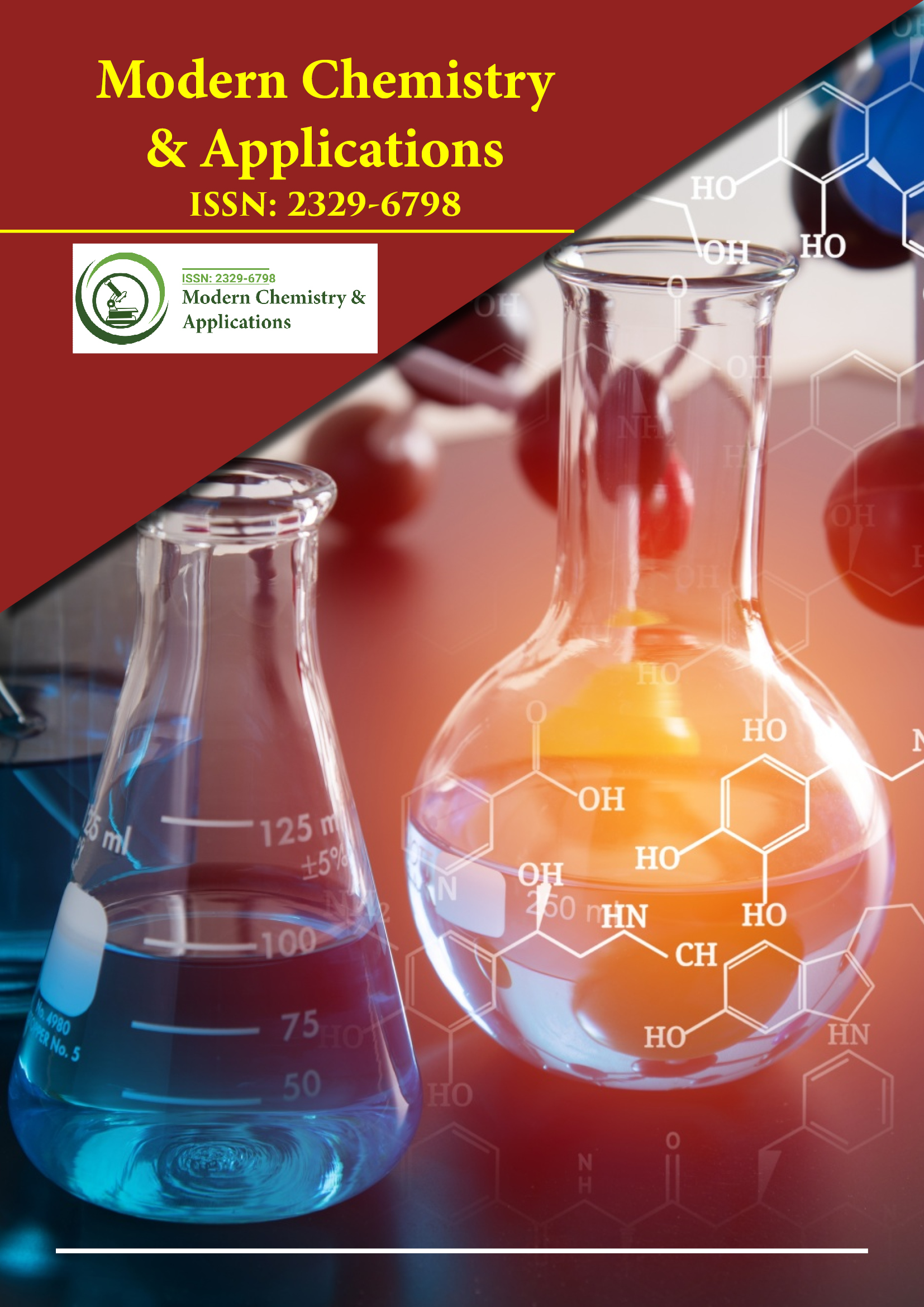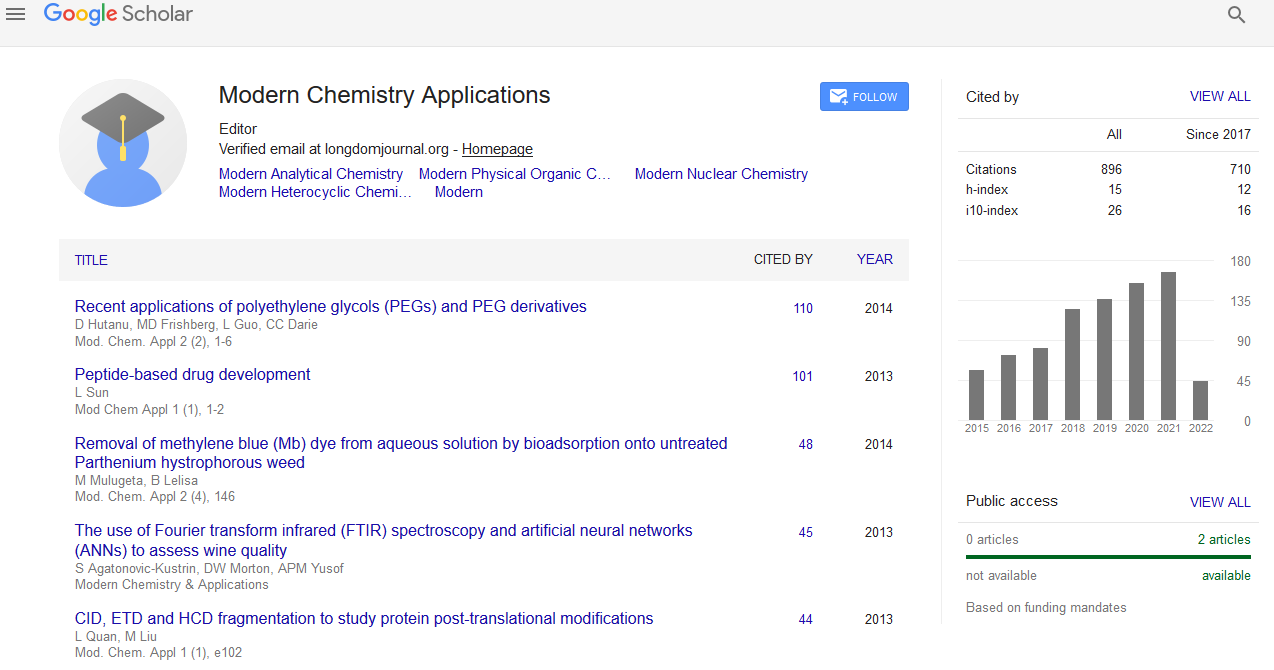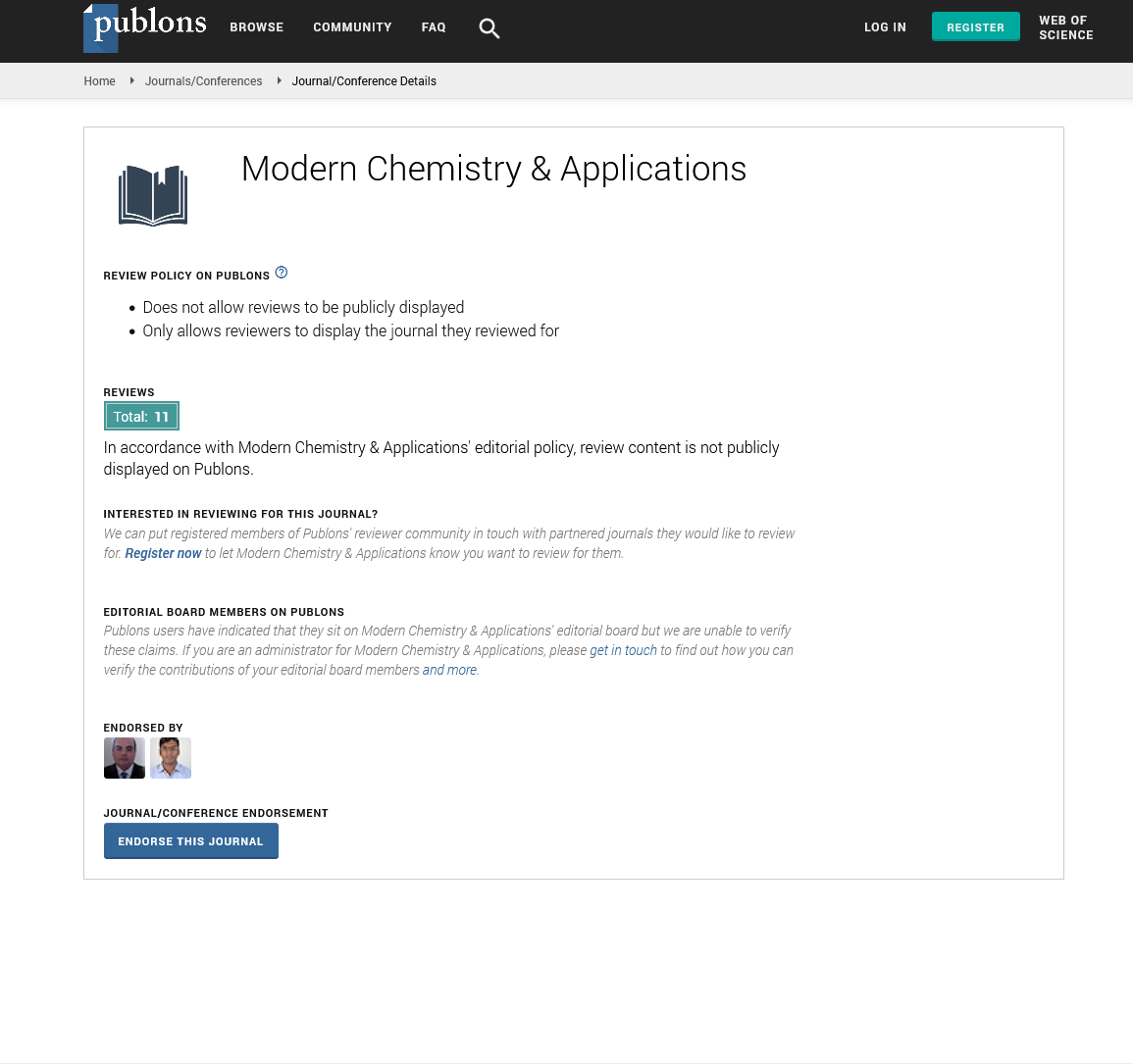Indexed In
- Open J Gate
- JournalTOCs
- RefSeek
- Hamdard University
- EBSCO A-Z
- OCLC- WorldCat
- Scholarsteer
- Publons
- Geneva Foundation for Medical Education and Research
- Google Scholar
Useful Links
Share This Page
Journal Flyer

Open Access Journals
- Agri and Aquaculture
- Biochemistry
- Bioinformatics & Systems Biology
- Business & Management
- Chemistry
- Clinical Sciences
- Engineering
- Food & Nutrition
- General Science
- Genetics & Molecular Biology
- Immunology & Microbiology
- Medical Sciences
- Neuroscience & Psychology
- Nursing & Health Care
- Pharmaceutical Sciences
Dry reforming of methane over hydroxyapatite-based catalysts
9th Global Chemistry Congress
July 23-24, 2018 | Lisbon, Portugal
Doan Pham Minh,Thanh Son Phan, Didier Grouset andAnge Nzihou
University of Toulouse, France
University of Toulouse, France
Scientific Tracks Abstracts: Mod Chem Appl
Abstract:
Dry reforming of methane (DRM) consists of the transformation of CO2 and CH4 in to synthetic gas (sygas, mixture of CO and H2) according to the following equation: CH4 + CO2 â???? 2CO + 2H2. This process allows valorizing biogas, flue gas from incinerator and natural gas into syngas which can be used in various processes such as Fisher-Tropsch synthesis, methanol synthesis, H2 production etc. DRM needs a catalyst because of the highly-chemical stability of CH4 and CO2. The main challenge of DRM relates to the deactivation of the catalyst. In fact, this process works at temperatures higher than 700??°C at low pressure (close to atmosphere) to have exploitable kinetic. Under these conditions, metallic catalysts used for this process (i.e. nickel catalysts) are usually deactivated by the presence of side reactions. In this paper, we present our last research on DRM process using hydroxyapatite supported nickel and/or cobalt catalysts. Hydroxyapatite (HAP, Ca10(PO4)6(OH)2) has advantages to be thermally stable up to around 1100??°C, to be not water sensitive, to have controlled acido-basicity from the adjustment of Ca/P ratio as well as high specific surface area. The results obtained show that Ni/HAP and Ni-Co/HAP are very active and stable during long reaction time of around 300 hours. The relationship between the catalyst structural properties and their catalytic performance was built. The results are promising for the design of a performing catalyst for DRM process.
Biography :
Doan Pham Minh has completed his PhD from IRCELYON (France) and Post-doctoral studies from IFP (France) and IMT Mines Albi (France). He is now an Assistant Professor at IMT Mines Albi (an engineering school in France). He has published more than 50 papers in peer-reviewed international journals and has been serving as an Editorial Board Member of Waste Biomass Valorization Journal. His keyworks includes: Heterogeneous catalysis, wastewater treatment, gas treatment, gas purification, heavy metal treatment, calcium phosphate-based material, waste and biomass valorization, pyrolysis, gasification and thermal energy storage.
E-mail: doan.phamminh@mines-albi.fr


